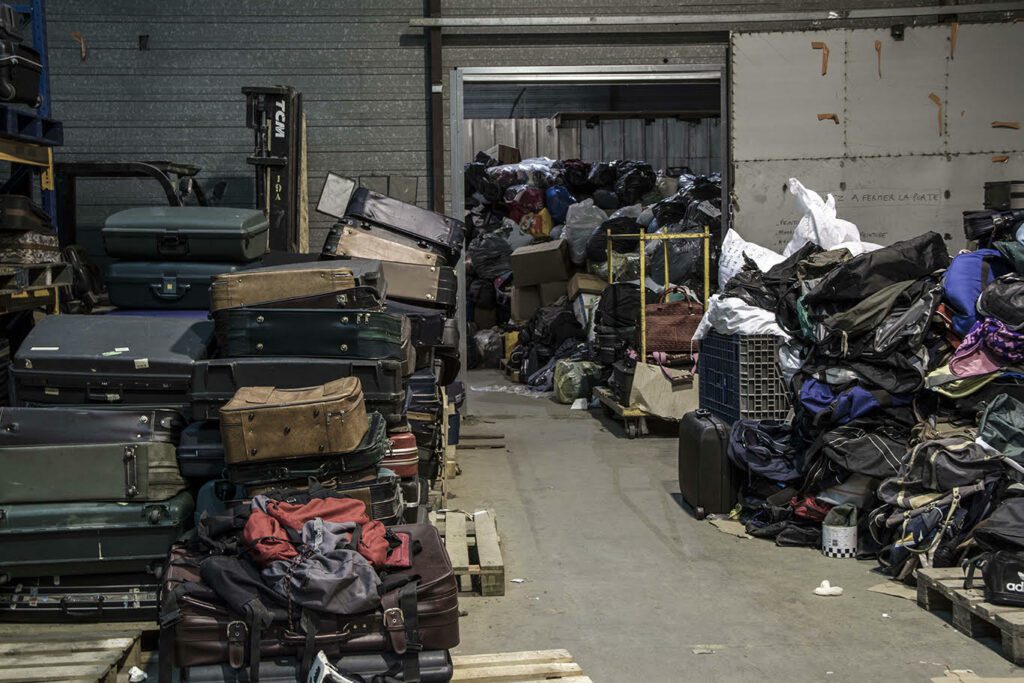ERforS HQ, Drogenbos, Belgium
17 Jun 2018 - 09 Sep 2018

Photo from 'Taming Anonimity' the artist book by Guy Woueté
The interdependent art initiative Enough Room for Space (ERforS) presents the exhibition ‘Taming Anonymity’ with works by Guy Woueté.
Guy Woueté left for Calais on 20 October 2016 after the speech of the French President at the time François Hollande caused much stir in the media and an outcry by NGOs operating in Calais (26 September 2016). “We have to quickly and entirely dismantle the Lande camp”. This declaration by the French President presented all aspects of a formal notice and it will echo as such in the memory of all those migrants whose life has been nothing but a succession of formal notices and procedures.
Migration, dissent and transgression have been characteristic of the human evolution since the beginning of time. The Jungle of Calais was a city until the 24th October 2016. A city with places of worship, bars and cafe’s, mafia networks and informal architecture that did not always match with the daily chaos and the variety of inhabitants.
The genesis of the project ‘Taming Anonymity’ dates back to the encounter of Guy with a famous letter known as ‘The Last Letter of Lumumba’ in 2015*. A spoken recording of this letter became the source of the sound piece ‘(Re)traite’. This letter of Lumumba is written after the independence of Congo DRC when as an independent country it had just been born. Patrice Lumumba (1925-1961), anti-colonial activist, seasoned politician and deposed prime minister, was at the time held captive in a prison from which he would never return. From prison, he wrote to his wife and “companion”, Pauline Opanga Lumumba (1937-2014) at the end of 1960.
Guy Woueté’s work has a performative approach that is incorporated in the way his projects are developed, produced and finally presented. On Guy’s journey that took him from Antwerp to the Jungle of Calais and back, he wrote his own subjective story of this larger collective moment.
All the images, texts and objects collected by Guy became part of his personal story within the context of the significant history of the jungle of Calais. The work reflects on the question of the collective that is being shared within an artists book and this exhibition.
The exhibition is accompanied by a screening of ‘Nou voix’ by Maxime Jean-Baptiste. ‘Nou Voix’ is an autobiographical video departing from the participation of Maxime’s father, as a Guyanese figurant, in the movie ‘Jean Galmot aventurier’ (1990), which deals with the history of French Guiana. By re-enacting a part of the film, Maxime and his father try to amplify other kinds of voices that have been unheard in the original French film.
–
Guy Woueté writes about his work and experiences while visiting Calais in 2016: “There is not one but there are various migration routes. As a migrant myself with a personal experience of migration coming from Cameroon, even though all experiences are unique and subjective, I place myself theoretically within the collective itinerary concerning those who are denied free movement. Throughout my stay in Calais, I experienced and shared the solitude of migrants and hundreds of volunteers and other ‘anonymous’ people who came with the certainty that all hope is not lost. Inside the Calais jungle, at the very heart of swarming disorder, something beyond words and images became elusive to me.
Without manifesting itself through tangible facts, this positive feeling stimulates you and helps you live through the worst as if the victory of opponents/politicians turned into the evidence of its failure anyway. The dismantling of that shame of so-called civilised societies is no success, far from there, for that event is marking a turning point in the issue of how to deal with immigration in France. Regardless of whether the media accept so or not, the migrants in the Calais jungle tamed the anonymity, which sentenced them to violence and other xenophobic, racist and police aggressions. They tamed the anonymity which reduced them to the status of cattle without shepherd, bound for wildly tear down dehumanising political and monopolistic systems. I do hope these images will help people to better grasp the reasons for my interest in that place which I shall forever consider a Border Monument.”
*Guy was researching the collections of PointCulture (Brussels Media Library) as part of a residence on the theme Colonialism / Post-colonialism organised in partnership with l’art même and PointCulture. This letter was reproduced in the booklet of a box of three DVDs of archival documents and interviews of various personalities on Africa in the twentieth century.
.